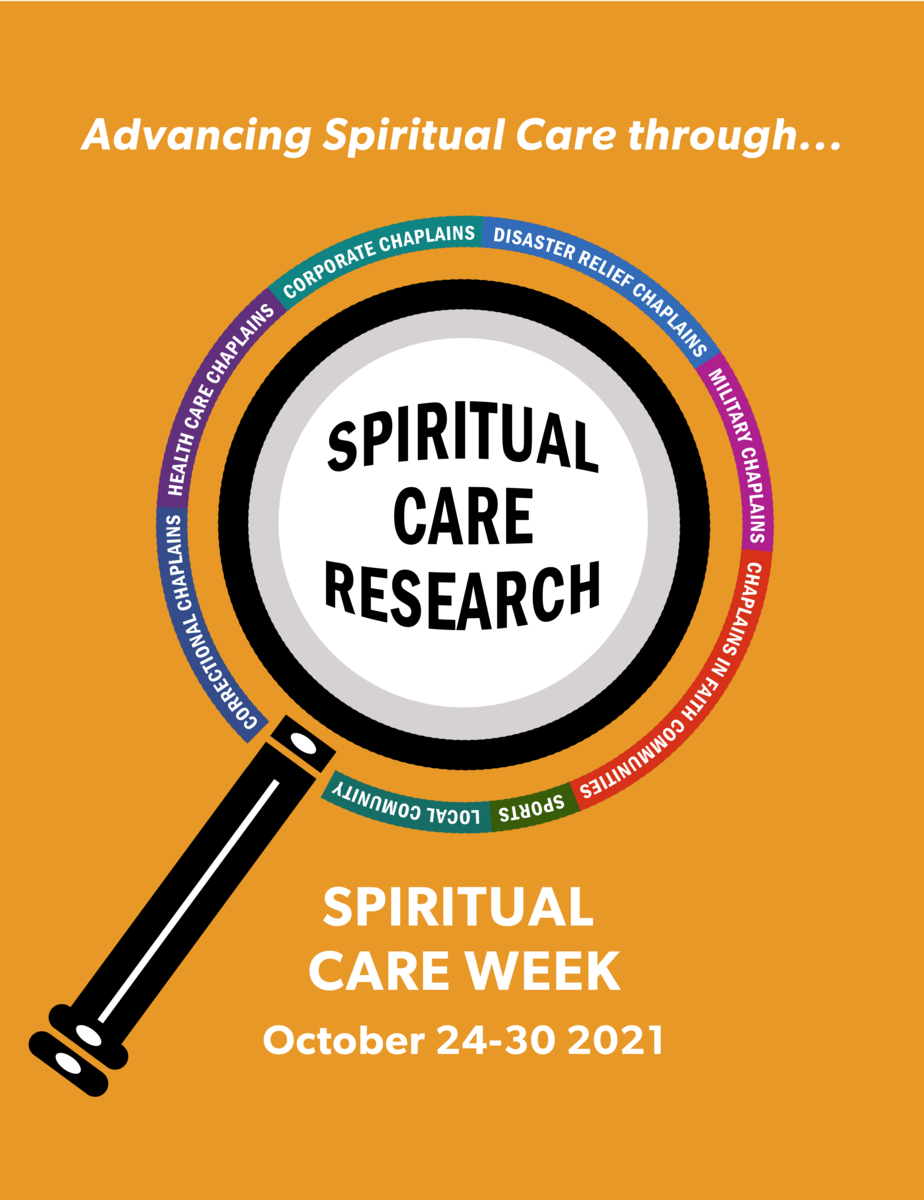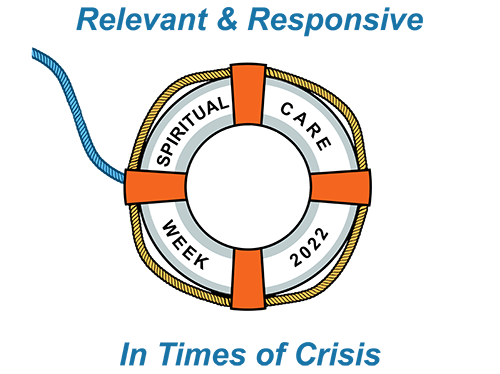How can we help?
888-283-1722
Call us now at 888-283-1722
24/7 Referrals and Nursing Support
Voices of Care Blog

Advancing the Landscape of Spiritual Care Through Research
Posted on October 28, 2021 by Rev. Donna Spencer Collins, M.Div.The role of spiritual councilor/chaplain has had to adapt to our changing world. Recent consumer research points to a shift in sentiment that the role of a chaplain should be more about spirituality rather than religious affiliation. This change allows a broader range of hospice patients and their families to feel welcome to embrace the support of a chaplain and to identify feelings of spiritual support, resolution and a positive spiritual outlook in hospice settings.
But what is spirituality and what role does it play? The World Health Organization now defines the four dimensions of well-being as physical, social, mental, and spiritual health. The spiritual dimension “is not material in nature, but belongs to the realm of ideas, beliefs, values, and ethics that have arisen in the minds and conscience of human beings, particularly ennobling ideas.”[i]
Spirituality can also be described as the nature of the human spirit with the universal attributes of love, joy, peace, patience, kindness and self-control. We are a spirit, that has a mind, which lives in a body. The human Being navigates through life with a strong desire to belong and connect with others and with the Divine.
How can a chaplain help? The hospice care team partners with patients and caregivers to develop customized plans that manage illness and honor personal needs and goals. Its members can include an admissions nurse, physician, clinical manager, nurse case manager, hospice aide, social worker, chaplain, volunteer, complementary therapist(s), and bereavement counselor. A nurse focuses on the patient’s body. A social worker focuses on the patient’s social and mental aspects. A chaplain focuses on the patient’s spirit.
When a patient comes on to hospice, there are known and unknown variables. The physical prognosis is well documented, and nursing care can be determined expeditiously. Social service and emotional counseling must be assessed and evaluated so services can be put in place. Often the chaplain role is less clear, especially for patients and families who assume the chaplain is clergy and see themselves as spiritual and not religious. Statistically, chaplain services are the most declined services of the hospice care team because of their religious origins.
But chaplains can benefit even those who aren’t religious and who don’t initially understand their role. Chaplains are educated in assessing the spiritual dimension of a person within the context of one’s cultural and religious norms. When a person’s well-being becomes injured by illness, distress or loss, the chaplain can help the patient explore the spiritual conflict, which often manifests itself with feelings of shock, abandonment, hopelessness, guilt, resentment, and anger.
Research has shown that people without a religious affiliation are still likely to hold Spiritual beliefs that have been impacted by the cultures and the religious systems that are part of their lives. A 2012 hospital study of 46 million US adults who reported no religious affiliation revealed in a satisfaction survey that care from chaplains was associated with higher levels of overall patient/family peace of mind. Furthermore, the overall care received from the care team and agency was enhanced when patient/family used Chaplaincy services.
What happens during the chaplain visit?
Several studies of chaplain visits found that:
- 92% include active listening.”[ii]
- 72% include empathic listening
- 60% include religious or spiritual activities, such as prayer or rituals
- 30% include emotional support and religious or spiritual activities
What do patients want from chaplains?
In a 2010 survey:
- 70% of patients wanted at least one visit from a chaplain.
- 78% wanted chaplains to remind them of God’s care and presence.
- 71% wanted chaplains to offer support to their family and friends.
- 69% wanted chaplains to be with them during times of anxiety or uncertainty.
- 62% wanted chaplains to pray or read scriptures or sacred texts.
- 39% wanted chaplains to counsel them regarding moral or ethical concerns or decisions.[iii]
Why is spiritual care so important at end of life?
All members of the hospice care team understand that each human being, no matter their race, color, creed or their sexual or gender identity, are to be held in high esteem; justly and with dignity.
The Chaplain understands that the essence of who we are (our Spirit) will leave the body behind and all its earthly needs will come to an end. When a Chaplain escorts a patient through end of life, they skillfully help the patient identify who and what has sustained them. Patients also open up about regrets and mistakes and find healing and resolution. In addition, if the person can recognize how LOVE and belonging matters, Spiritual health can be realized, offering peace of mind and comfort.
My understanding of our Spirit selves has evolved dramatically through the years as I have gained knowledge by researching the spiritual dimension of care and its attributes. I have witnessed the opening of hearts and minds and how that has set them free from fear. Patients were able to speak more openly about dying, which in turn helped the family speak openly. Patients who had a healthier spiritual outlook allowed themselves to imagine not just an end but a new beginning after this life. They also were better able to make their needs known to members of their care team and to family and friends. When these lived experiences are realized, patients will have had a good death and bereavement and grief may be better managed. This is what the chaplain strives for.
About the author
Rev. Donna Spencer Collins, M.Div., is Pastor of the Phoenix Rising United Church of Christ in Groveland, MA, and a chaplain with Care Dimensions.
END NOTES
[i] World Health Organization. (1991). Retrieved from http://new.worldlibrary.net/ wplbn0000152157-world-health-organization-publication--year-1991--issue9290211407--chapter-4-by-world-health-organization.aspx 6. Ross, L. (1995).
[ii]https://www.professionalchaplains.org/Files/resources/The%20Impact%20of%20Professional%20Spiritual%20Care_PDF. Pg. 18 Oct 2021
[iii] Williams, J. A., Meltzer, D., Arora, V., Chung, G., & Curlin, F. A. (2011). Attention to inpatients’ religious and spiritual concerns: Predictors and association with patient satisfaction. Journal of General Internal Medicine, 26(11), 1265–1271.
I highly recommend you download “The impact of professional Spiritual care” from ProfessionalChaplains.org.
Additional Posts
Catch the Light: Chaplaincy and Mental Health
Posted on October 24, 2023 by Mary Ann Christie Burnside, Ed.D., M.Div.In observance of Spiritual Care Week, a hospice and pediatric palliative care chaplain writes that healing is always possible, even as things may not be fixed or cured. ...
Continue readingPandemic Reflection: Spiritual Counselors Do What it Takes to Create a Sacred Space
Posted on October 24, 2022 by Rev. Beth Loughhead, M.Div.In recognition of Spiritual Care Week and its theme, "Relevant and Responsive in Times of Crisis," Care Dimensions Spiritual Counselor Beth Loughhead recalls the extraordinary measures taken to create a sacred space for hospice patients, families, and co-workers during the COVID-19 pandemic. ...
Continue readingUsing the Spirit of Ubuntu in Patient Care
Posted on April 25, 2022 by Amy CiancarelliDuring Patient Experience Week and every week, let us appreciate and nurture the relationships we have with one another and know that we are better together. ...
Continue readingAnyone—patient, family, care provider—can make a referral. Fill in the form online or call us today.
Since 1978, Care Dimensions, formerly Hospice of the North Shore, has provided comprehensive and compassionate care for individuals and families dealing with life-threatening illnesses. As the non-profit leader in advanced illness care, we offer services in over 100 communities in Massachusetts.
Copyright 2024 | Care Dimensions, 75 Sylvan Street, Suite B-102, Danvers, MA 01923 | 888-283-1722 | 978-774-7566 |









